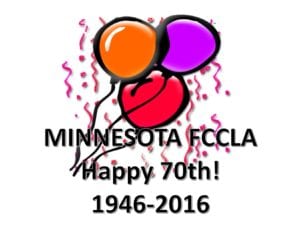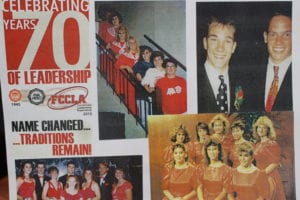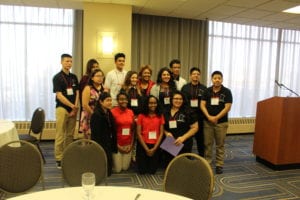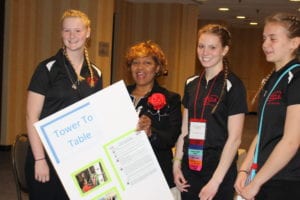Minnesota FCCLA is 70 years old this month.
The important work of family and consumer science education is played out in the student organization FCCLA. Happy Birthday Minnesota FCCLA! Our charter was June 1946. 
For 70 years the organization has provided young people the support, experiences and opportunities to become exemplary leaders in their communities, families and careers. With foundations in youth development practices, advisers (Family and consumer sciences teachers) have used their professional expertise to guide thousands of young people toward meaningful careers and leadership positions. Why does FCCLA work? Our surveys show that 85% of all FCCLA members are more hopeful about their life in general. Over 75% of all STAR Event participants say they can better communicate with others. FCCLA is making an impact in the lives of our members.
Here are some of the reasons FCCLA works.
Asset theory- The more assets a young person has (both internal and external) positively affects how a students is able to do conflict resolutions, have a sense of purpose, and feel support from caring adults. FCCLA helps to provide many of the asset building activities in their lives. For more information on asset building, see www.search-institute.org.
Building social capital- No one does everything for themselves. Those who are successful are connected with others who support them. FCCLA helps introduce young people to resources, networks of supportive people (alumni, other advisers, their peers) who can give them advice, react to their projects and STAR Events, and help them belong.
Maslow’s Theory of self actualization- Abraham Maslow said that belonging is important. People are motivated to achieve certain needs. Every person is capable and has the desire to move up the hierarchy toward a level of self-actualization. A need to belong is met with FCCLA chapter involvement. The growth of self-actualization refers to the need for personal growth and discovery that is present throughout a person’s life. For Maslow, a person is always ‘becoming’ and never remains static in these terms. In self-actualization a person comes to find a meaning to life that is important to them.
FCCLA can provide students with experiences that help them toward becoming self-actualizers. Working in teams, on competitive events, on projects in FCCLA can provide youth members with opportunities to experience many of these qualities.
- They perceive reality efficiently and can tolerate uncertainty;
- Accept themselves and others for what they are;
- Spontaneous in thought and action;
- Problem-centered (not self-centered);
- Unusual sense of humor;
- Able to look at life objectively;
- Highly creative;
- Resistant to enculturation, but not purposely unconventional;
- Concerned for the welfare of humanity;
- Capable of deep appreciation of basic life-experience;
- Establish deep satisfying interpersonal relationships with a few people;
- Peak experiences;
- Need for privacy;
- Democratic attitudes;
- Strong moral/ethical standards.
Some resources:
http://www.simplypsychology.org/maslow.html#classroom
Maslow, A. H. (1943). A Theory of Human Motivation. Psychological Review, 50(4), 370-96.
Maslow, A. H. (1954). Motivation and personality. New York: Harper and Row.
Maslow, A. H. (1962). Towards a psychology of being. Princeton: D. Van Nostrand Company.
Maslow, A. H. (1968). Toward a Psychology of Being. New York: D. Van Nostrand Company.
Maslow, A. H. (1970a). Motivation and personality. New York: Harper & Row.
Maslow, A. H. (1970b). Religions, values, and peak experiences. New York: Penguin. (Original work published 1964)
The important work of family and consumer science education is played out in the student organization FCCLA. Happy Birthday Minnesota FCCLA!

